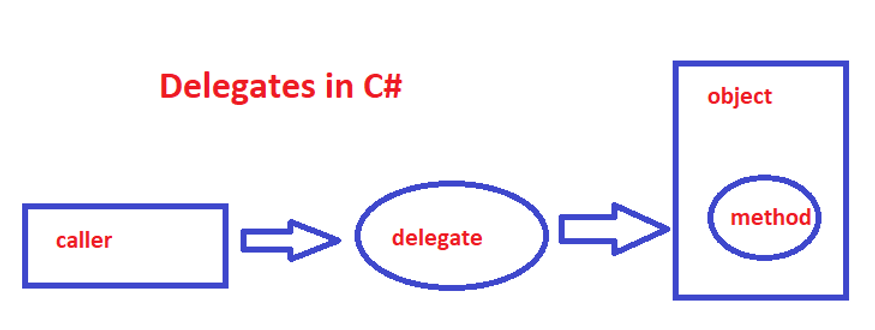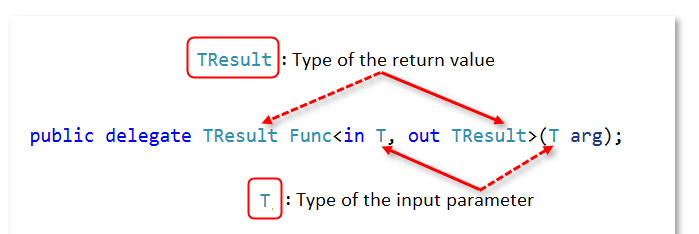Delegates, often regarded as one of the cornerstones of delegates in C# programming, play a pivotal role in the language’s versatility and extensibility. In this comprehensive guide, we will embark on a journey to explore the world of delegates in C#. By the end of this article, you will have a profound understanding of what delegates are, how they work, and where they fit into your C# development endeavors.
Understanding Delegates in C#
Before we delve into the intricacies, it’s essential to grasp the fundamental concept of delegates in C#. A delegate is, at its core, a reference type variable. However, it is unique in that it holds a reference to a method, making methods themselves first-class citizens within your code. This ingenious abstraction allows for a level of flexibility and functionality that is the hallmark of modern C# programming.

Anatomy of Delegates
To wield the power of delegates effectively, one must first understand their structural components. Let’s break down these components step by step:
delegate returnType delegateName(parameters);
The declaration of a delegate starts with the delegate keyword, followed by the return type it will handle. Afterward, you provide a name for your delegate and specify any parameters it may need.
Instantiation
delegateName = methodName;
Once you’ve declared your delegate, it’s time to instantiate it. This is done by assigning it to a method, denoted by methodName. Now, your delegate is ready to be invoked.
Invocation
returnType result = delegateName(parameters);
Invoking a delegate is similar to invoking a regular method. You pass the required parameters and receive the return value, just as you would with any other function.
Types of Delegates
C# offers various types of delegates, each tailored to a specific use case:
Singlecast Delegates
Singlecast delegates, as the name suggests, are delegates that reference a single method. They are the simplest form of delegates and are often used when you need to pass a single method as a parameter.
Multicast Delegates
Multicast delegates are the versatile workhorses of C#. Unlike singlecast delegates, they can reference multiple methods. When invoked, a multicast delegate calls each of the referenced methods in succession. This feature is invaluable in scenarios where you need to perform several operations in sequence.
Func and Action Delegates
C# includes built-in delegate types called Func and Action. These delegates simplify the process of creating delegates for methods with specific signatures. Func delegates are used for methods that return a value, while Action delegates are used for methods that don’t return a value (void methods).
Practical Applications
Understanding the theory behind delegates is only the beginning. To truly appreciate their significance, let’s explore their real-world applications:
Event Handling
Delegates are the backbone of event-driven programming in C#. They enable you to subscribe to and unsubscribe from events, making your applications responsive to user interactions.
Callbacks
Delegates play a crucial role in callback mechanisms. They allow you to pass methods as parameters to other methods, enabling dynamic and extensible behavior in your code.
LINQ
Language Integrated Query (LINQ), a powerful feature in C#, relies heavily on delegates. LINQ uses delegates to perform queries on collections, databases, and other data sources, making it a go-to tool for data manipulation.
Also Read: 58.2x ^ 2 – 9x ^ 2; 5 – 3x + y + 6
Best Practices
To harness the full potential of delegates in C#, it’s essential to follow best practices:
Delegate Safety
Always ensure that you check for null references before invoking a delegate. Failing to do so can lead to runtime errors and unexpected behavior.
Use Built-in Delegates
Whenever possible, opt for built-in delegate types like Func and Action. They offer cleaner and more concise code, reducing complexity and enhancing readability.
Keep It Simple
Avoid creating overly complex delegate hierarchies. Simplicity often leads to better code maintainability and reduces the chances of introducing bugs.
Conclusion
In conclusion, delegates in C# are a powerful tool for enhancing the flexibility and modularity of your code. They serve as the foundation for event handling, callbacks, and LINQ queries, among other things. By mastering the anatomy of delegates and adhering to best practices, you can leverage this dynamic feature to create efficient, maintainable, and responsive applications.


